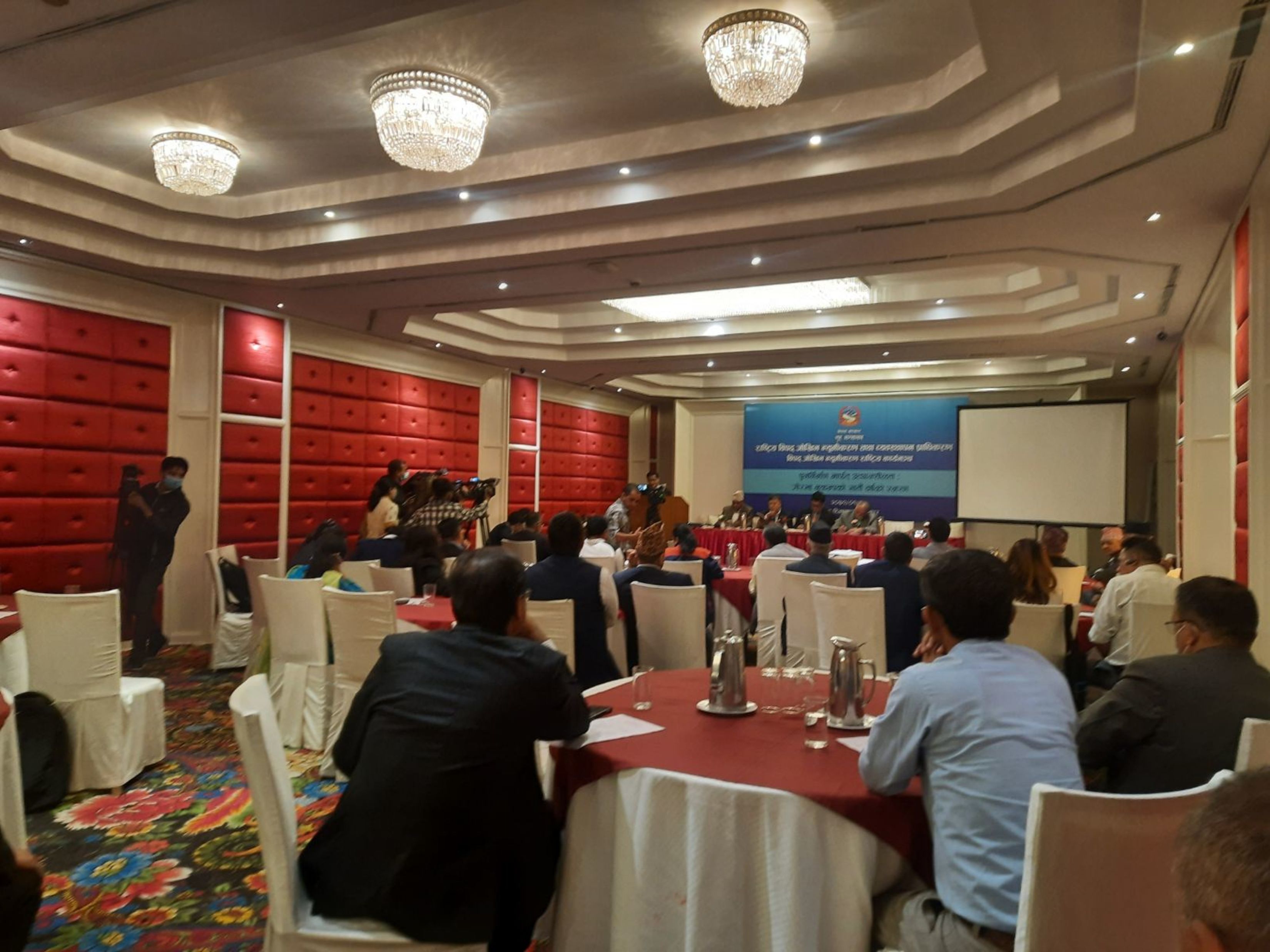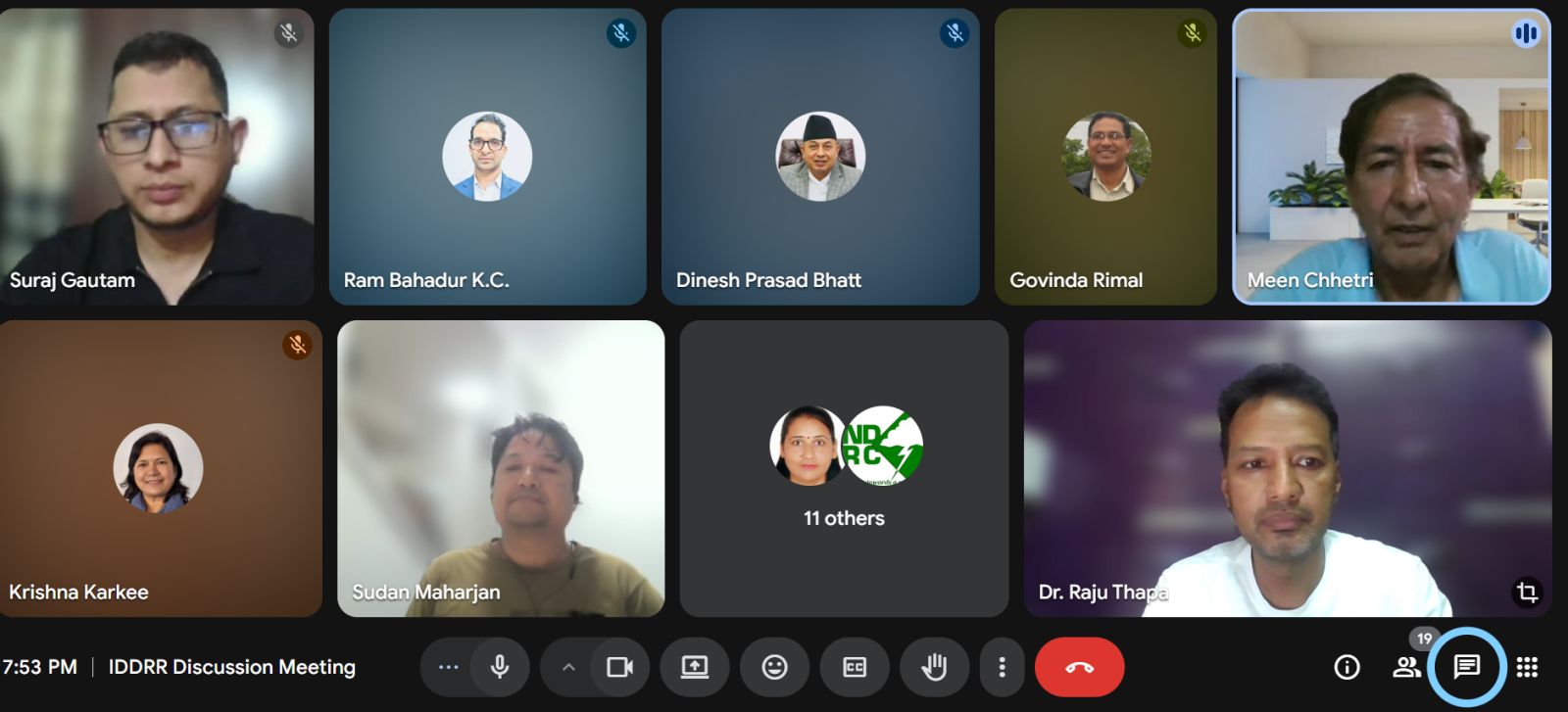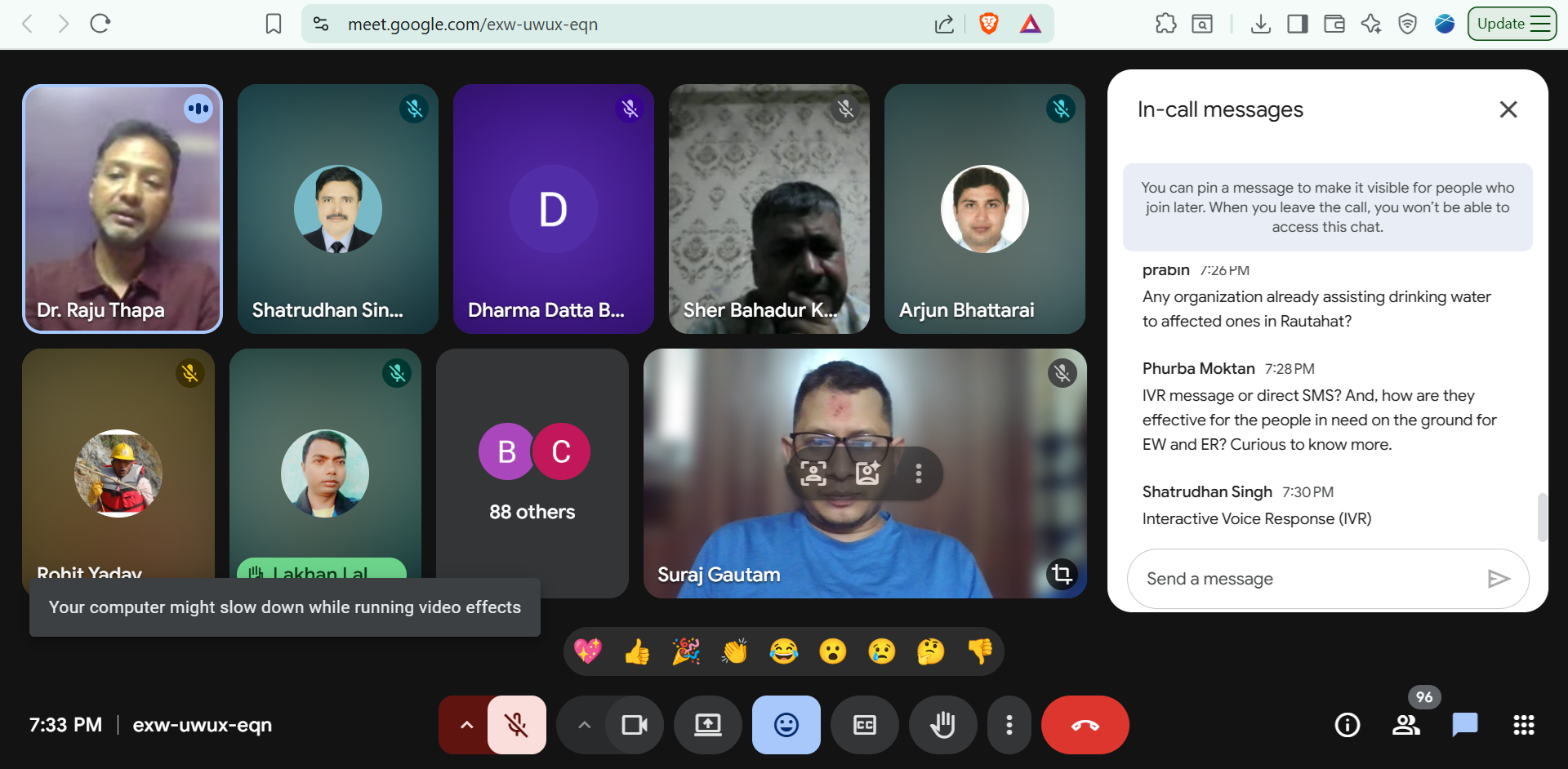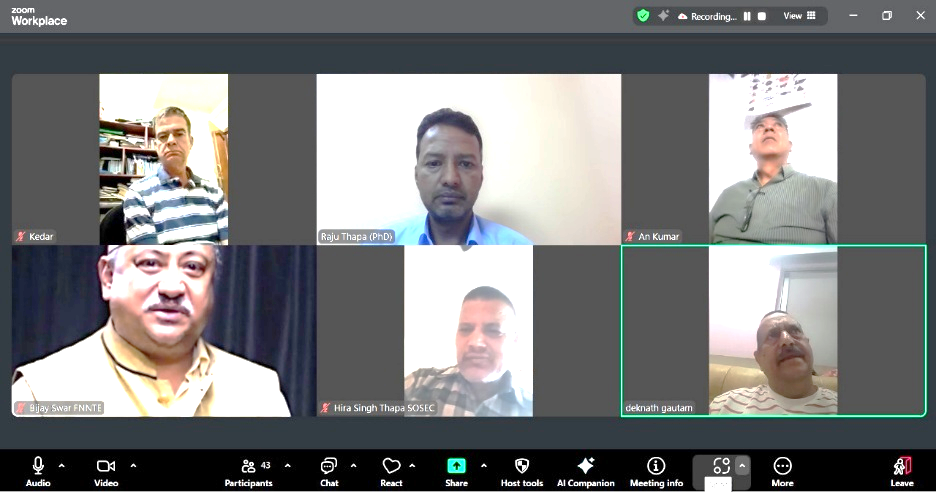7th Memorial Day of 2015 Nepal Earthquake
Apr 27, 2022

The National Disaster Risk Reduction and Management Authority (NDRRMA) organized a program in the 7th Memorial Day of 2015 Nepal Earthquake on April 25, 2022 at Hotel Himalaya in coordination with DPNet. Mr. Anil Pokhrel, Executive Chief of NDRRMA, Chaired the program and the Chief Guest of the program were Dr. Ganga Lal Tuladhar, former Education Minister and DRR&M expert, Mr. Sushil Gywali, CEO of National Reconstruction Authority, Mr. Yadav Prasad Koirala, Secretary, Ministry of Education, Science and Technology, and Mr. Pradip Kumar Koirala, Chief of Disaster and Conflict Management Division MoHA. The program was facilitated by Dr. Dijan Bhattarai, Under Secretary of NDRRMA. The program was focused on setting up of various preparedness activities to reduce the disaster risk. 71 participants from MoHA, NDRRMA, various government organizations, donor organizations, representatives from NGO, INGO, partner organizations and media joined the program.
Major Highlights:
Major Highlights:
- Ms. Anita Niraula, Joint Secretary of NDRRMA welcomed all the participants and highlighted the objectives of the program. She enlightened the working of NDRRMA on reconstruction, resilience, stakeholder's awareness and to assist the vulnerable community. She said that monsoon disaster and fire disasters are also on priority list of NDRRMA. She further said that NDRRMA has always focused on a whole of society approach during the disaster. She further highlighted the ways forward such as recognizing volunteers and mobilizing them during disasters, sharing experiences/good practices and studying the organization's past records and articles, forming a strong search and rescue team, and becoming knowledgeable about government institutions, structures and housing protocols.
- Mr. Pradip Kumar Koirala, Joint Secretary, Chief of Disaster and Conflict Management Division MoHA said many lives and properties have always been impacted by earthquakes. He remembered that different international agencies and foreign countries had provided a large number of rescue and medical teams during the Gorkha Earthquake. He added, Nepal should also take innovations about basket fund to use during disaster emergencies and there should be strong search and rescue team. He further added that the open space should not be destroyed. He highlighted that after the Gorkha earthquake, the law has improved significantly, and disaster has become one of the most important topics in history. He said MoHA has been working for a long time during disaster, and not just in the area of sunset laws.
- Mr. Hemang Kerliya, From World Bank explained about the condition of rebounding back from a series of disasters. He said that Nepal should learn good practices and lesson from Gorkha earthquake and always tries remain resilient. He further added the resilient development framework would be very good idea. He said since Nepal has excellent cooperation with development partners, they are always ready to help Nepal with reconstruction, recovery and financial stability.
- Mr. Sushil Gywali, Chief Executive Officer of National Reconstruction Authority highlighted about importance of disaster preparedness and recovery. He said that identifying the gaps of disaster risk reduction and management is very important. The newer innovations of distributing funds such as directly sending money to their bank accounts also can be practiced. He further highlighted about emphasizing on land use management, school and housing management, and disaster preparedness. in all three levels: national, provincial, and local. He further added that the fast work track concept, as well as proper labor and staff management should be encouraged.
- Dr. Ganga Lal Tuladhar, Former Education Minister and DRR&M expert said all of the authorities were first perplexed at the moment during the Gorkha Earthquke. He said we should view disaster as an opportunity rather than a curse. Disaster lessons should be taught in schools and universities as well. Engineers, structural engineers, geologists, and environmentalists should have a solid grasp on how disasters work. Nepal has a large number of researchers; thus we should take advantage of these. He added positive concepts like "Jhatpat Jhola," "awareness campaigns," and "resilient initiatives" should be promoted. Lightning strikes and fires are also serious disasters that require our attention. He added, In the future, we should commemorate Baishak 12 as Preparedness Day, Early Warning Day, or any other positive day.
- Mr. Yadav Prasad Koirala, Secretary of Ministry of Education, Science and Technology said there were some earthquakes that were predicted. He said early warning system has been established, but humans normally overlook such things, so a disaster has far-reaching consequences. In Nepal, there were numerous post-earthquake reconstruction projects. He added positive features such as the formation of a strong disaster committee, access to local resources, the construction of earthquake-resistant buildings and the management of residences, and the establishment of hospitals should all be strongly promoted.
Mr. Anil Pokhrel, Executive Chief of NDRRMA said that disasters records are documented in both hard copy and digital versions. He said that the relationship between strong development partners is also shown in those documents. The role of the different tiers of government in the NDRRMA is deeply linked. Localization, the Housing Recovery and Reconstruction Platform (HRRP), earthquake reconstruction, and other issues have always been priorities for NDRRMA. Participants from the NPDRR Platform were included in the program and now we should focus on collaborative preparedness action. Sharing and National Dialogue activities are very important. He gave a final vote of thanks to every participant and closed the program.











